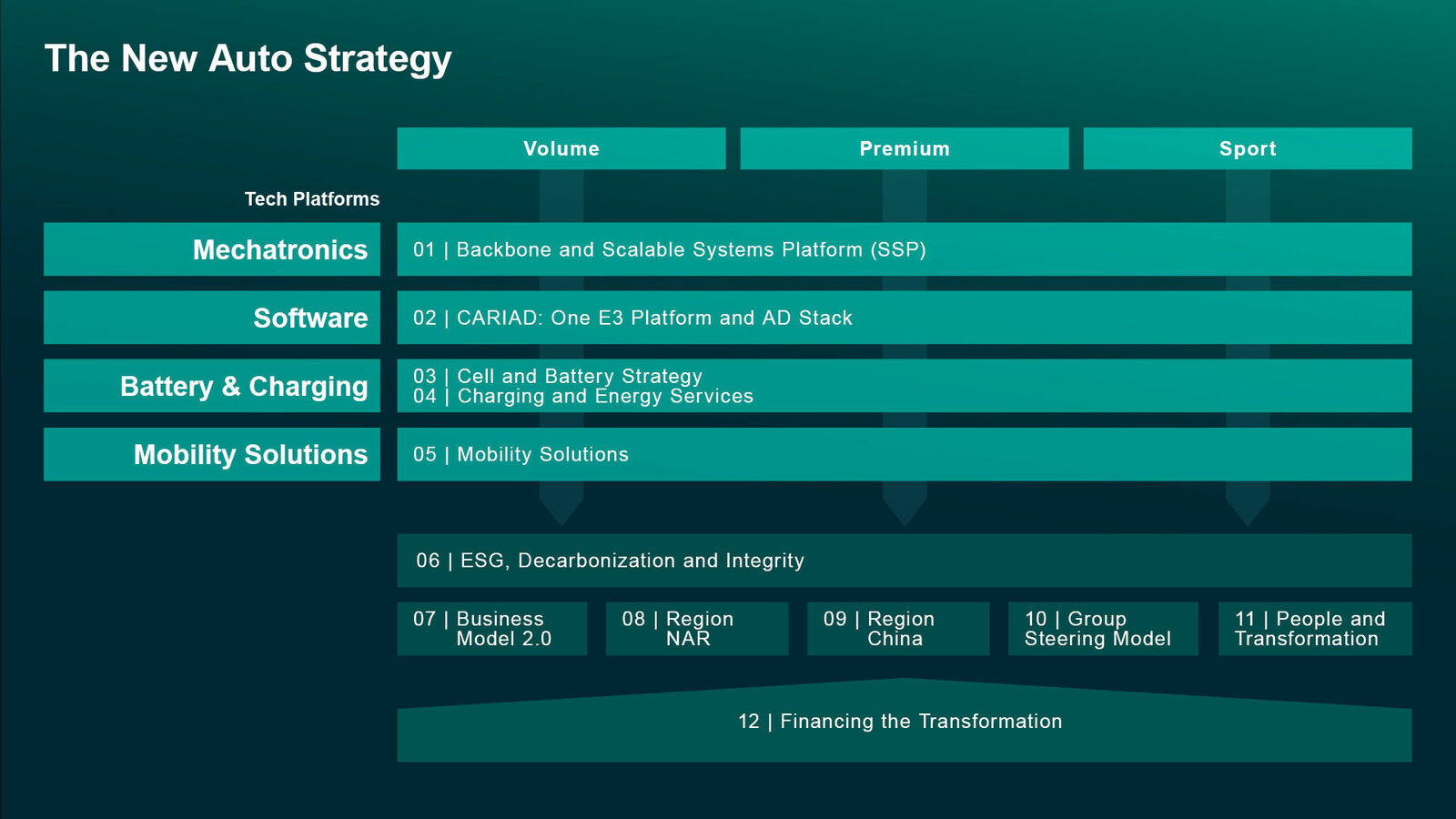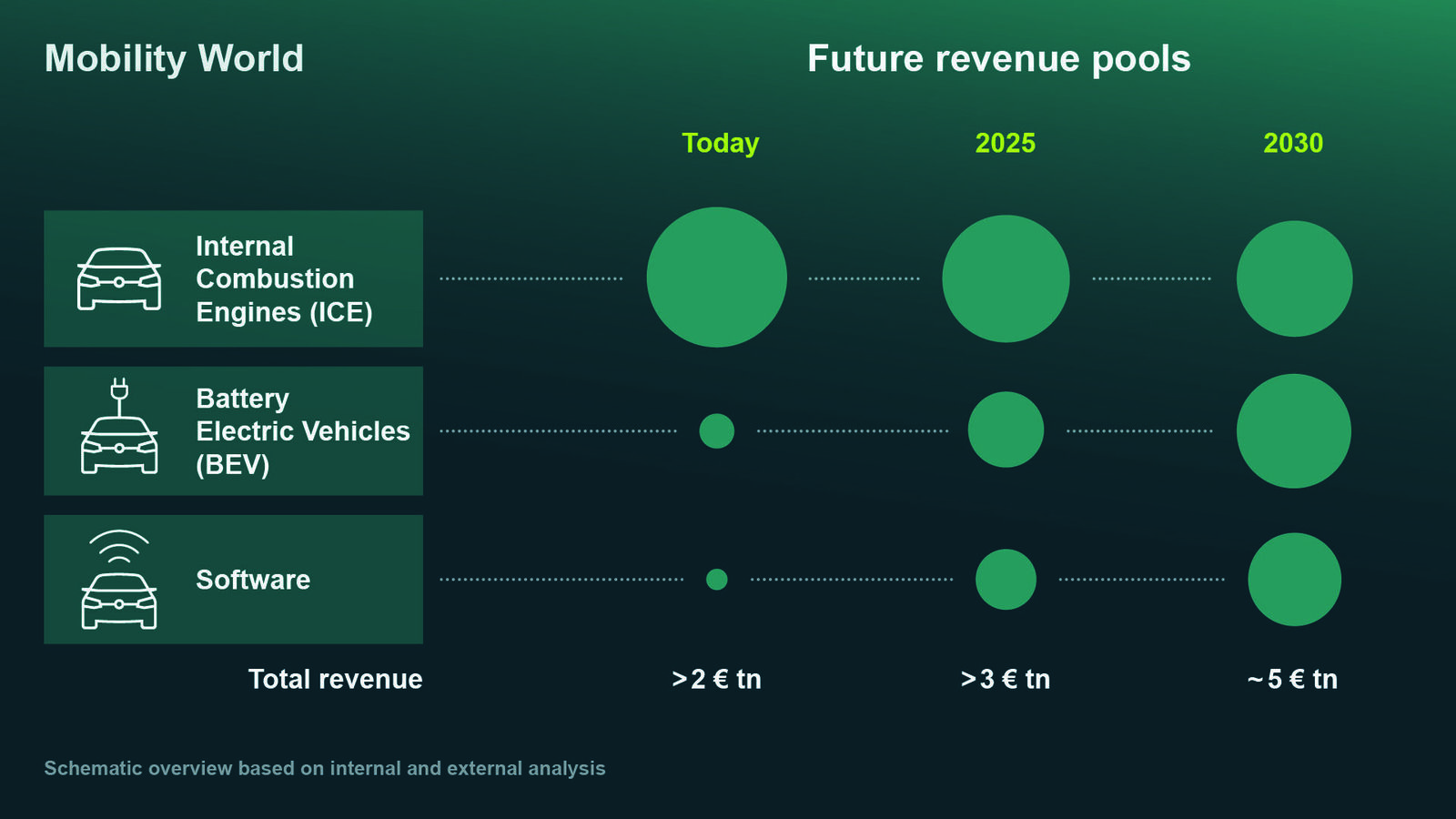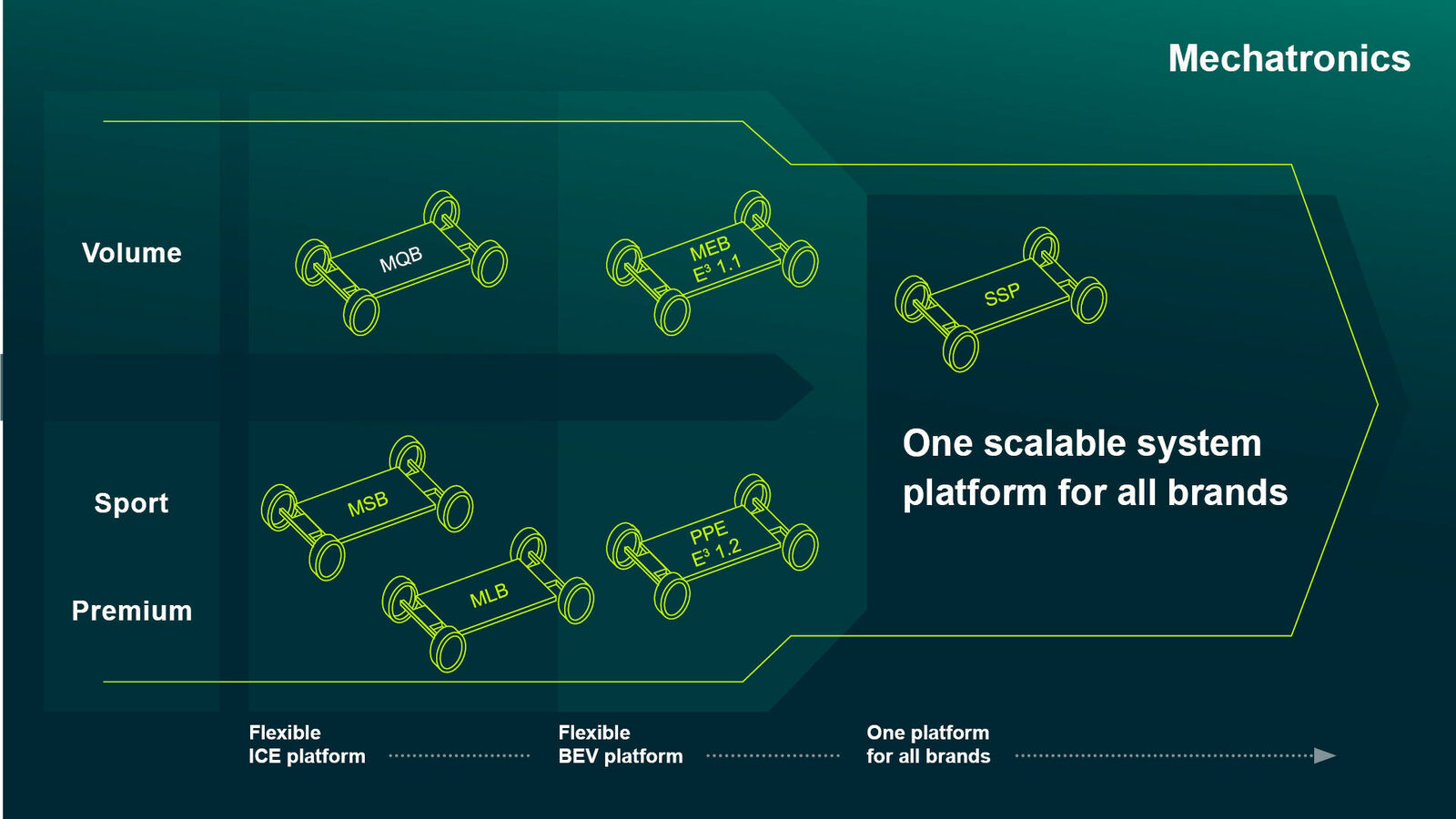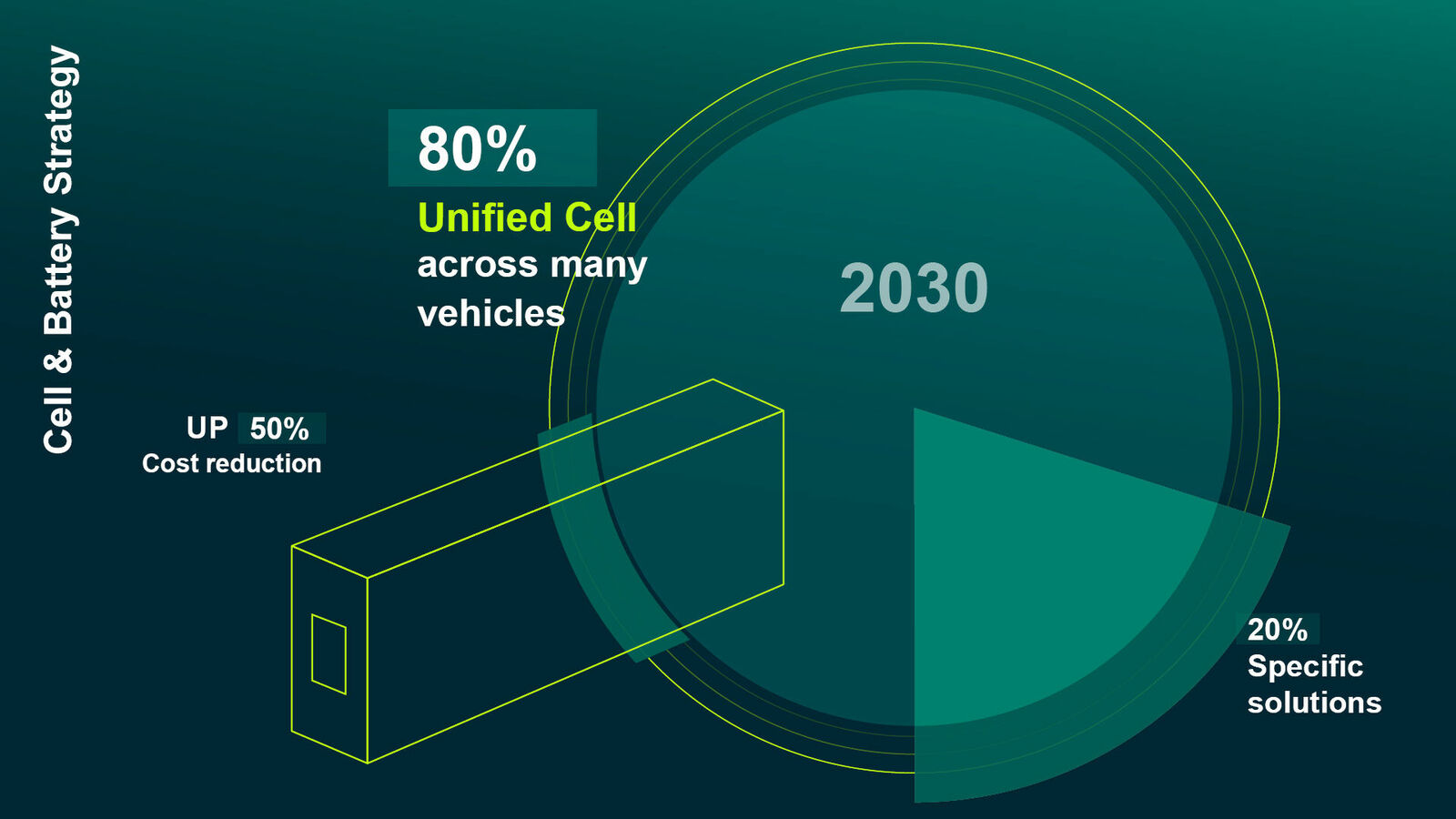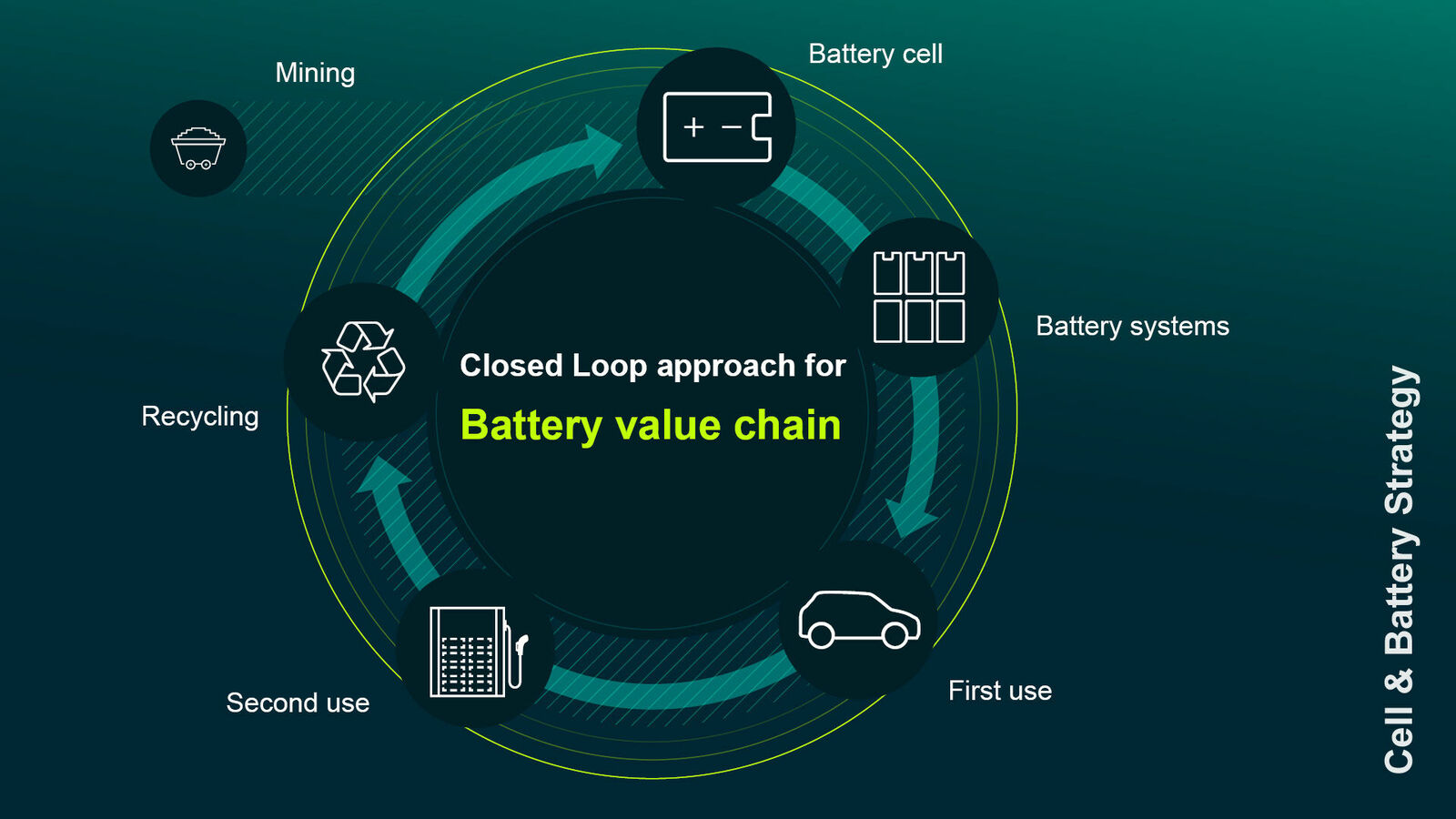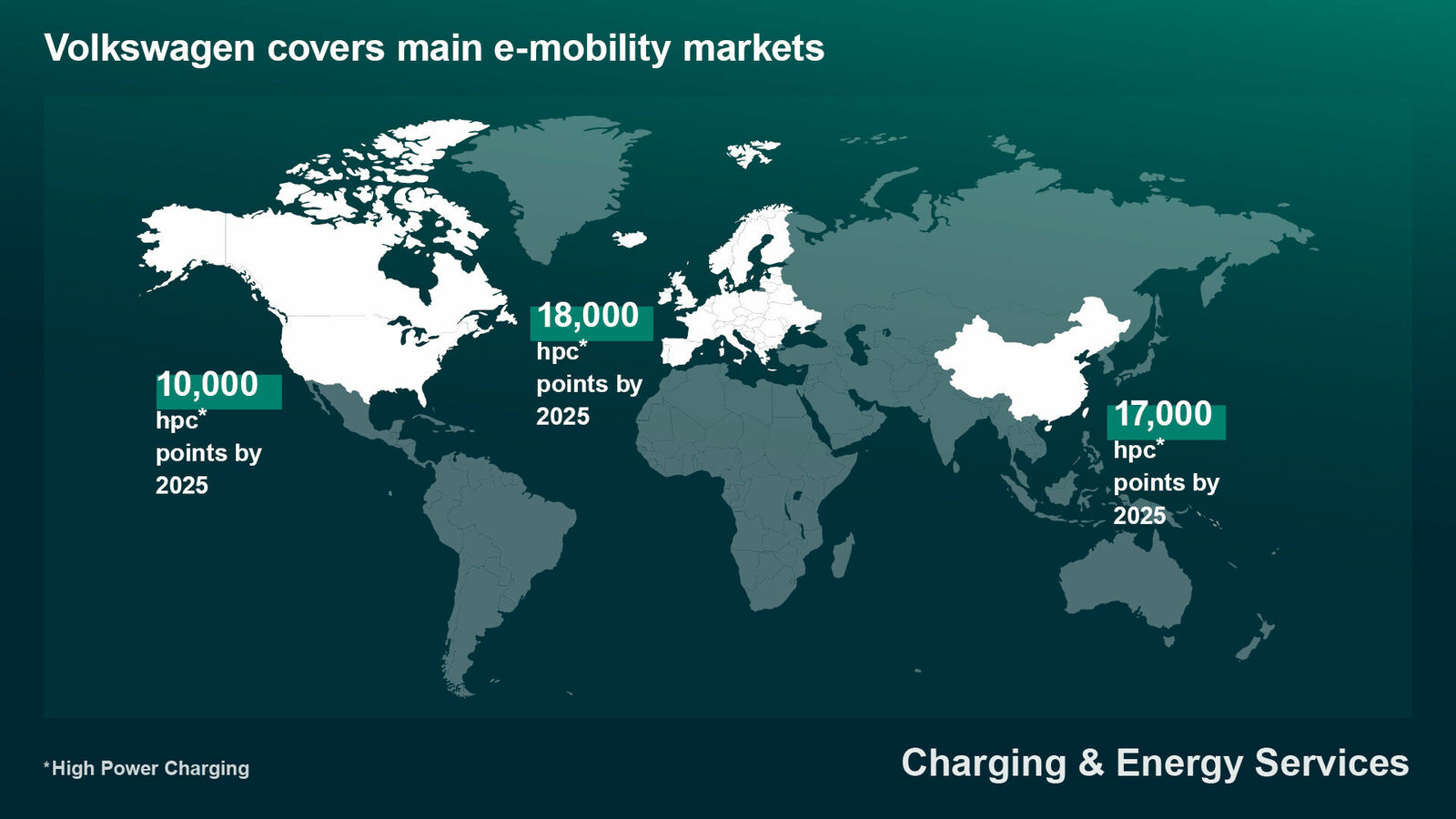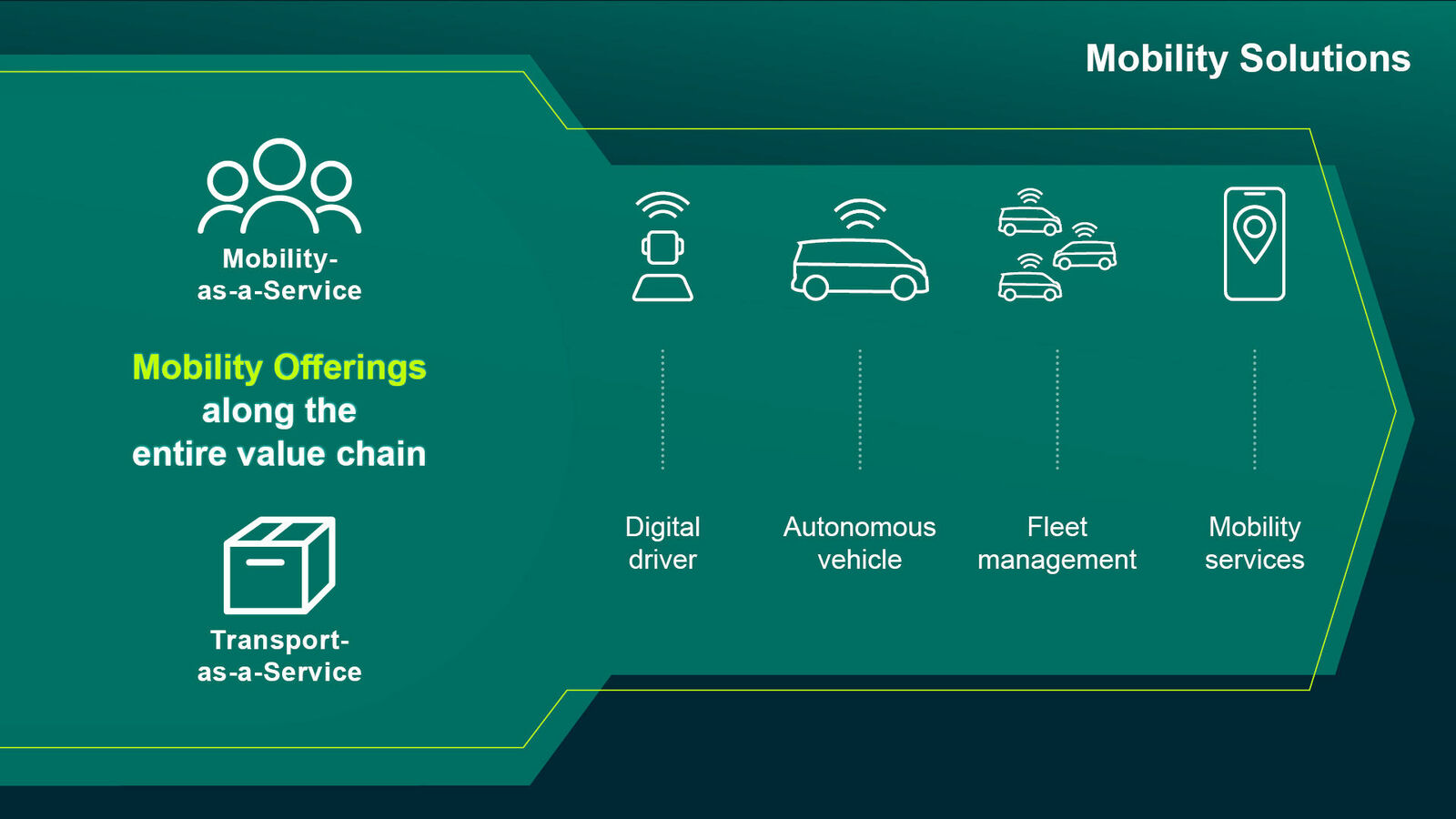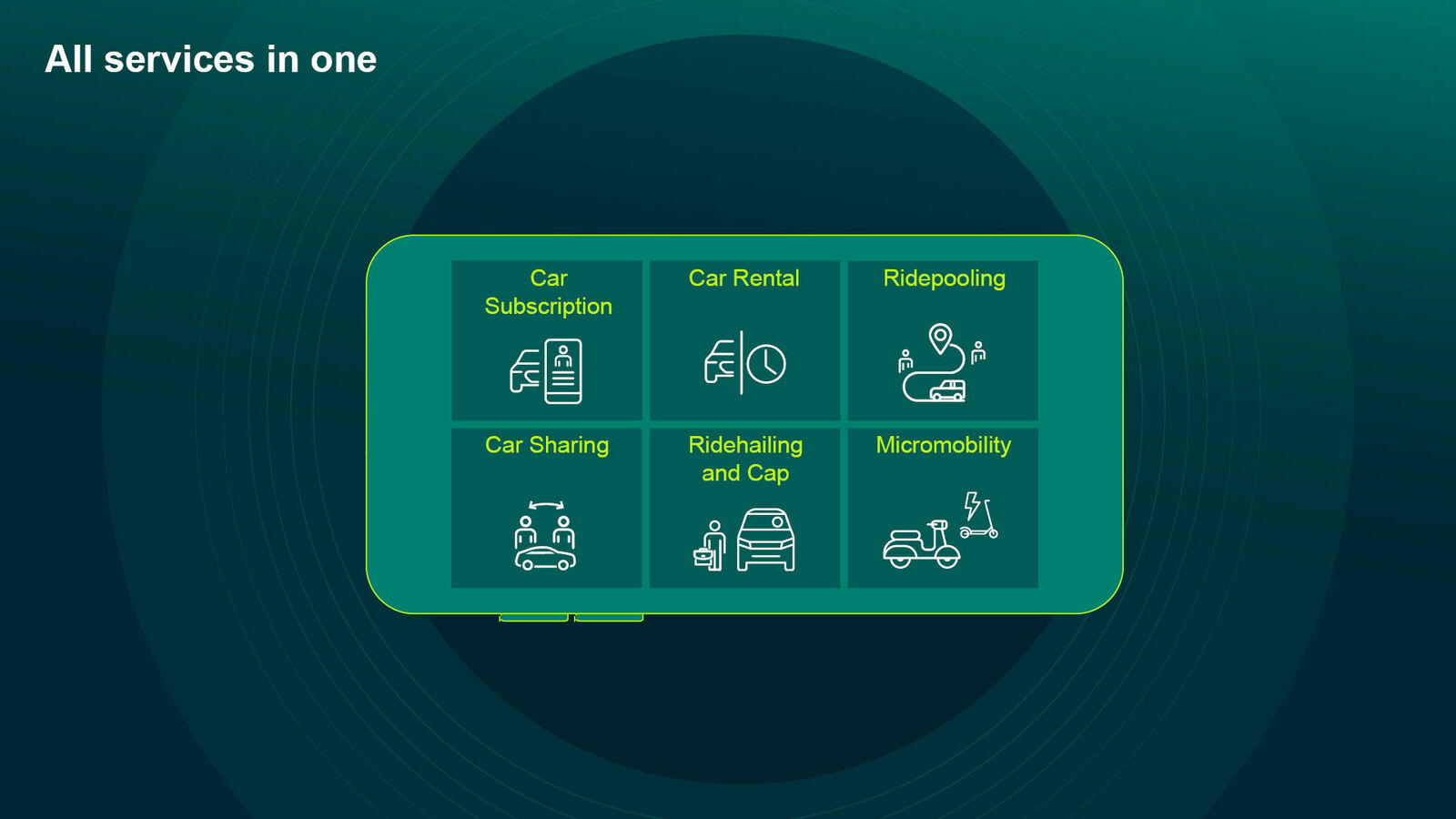As technology advances, the automotive industry is rapidly forging ahead with its transformation toward e-mobility and digitalization. We therefore expect the market for electric vehicles to grow strongly in the next few years, meaning that the cost-efficient and sustainable production of battery systems and the expansion of the charging infrastructure will be crucial to success.
The shift to connected, intelligent and eventually self-driving vehicles will, however, bring more wide-reaching changes for the automotive industry. Autonomous driving will change the customer's mobility experience forever and lay the ground for new business models. Sources of revenue will gradually shift and will expand beyond the core product of the automobile. Increasing software development capabilities in order to excite customers with constantly improving digital functionality is the prerequisite for this.
In equal measure to technological trends, the global economic and geopolitical environment is also posing increased challenges for the automotive industry. These include, for example, the economic influence of the largest mobility markets, China, the USA and Europe, and their diverging development.
Sustainability will continue to be a recurring theme in the business world and will gain further pertinence, driven by the increasingly noticeable consequences of climate change, a greater consciousness of sustainable lifestyles on the part of the customer and, not least, underlying factors such as the Paris Climate Agreement. As we transition from automotive manufacturer to mobility group, we are resetting our priorities with NEW AUTO and positioning ourselves for the future. We are keeping our aim of being a world-leading provider of sustainable mobility firmly in our sights and making the Group more focused, efficient, innovative, customer-oriented and sustainable, as well as systematically gearing it toward profitable growth.
To this end, we have established 12 Group initiatives across the brand groups. We will use these to develop the competences needed to implement the strategy. The focus is on the main multidisciplinary areas addressed by our technology platforms –mechatronics, software, battery & charging, and mobility solutions – on which the five tech initiatives described below are based. A further seven base initiatives form the foundation for the Volkswagen Group’s strategic realignment. These are ESG, Decarbonization & Integrity, Business Model 2.0, North America (NAR) Region, China Region, Group Steering Model, People & Transformation and Financing the Transformation.
For the operationalization of the strategy, the most important goals of each calendar year are defined and a TOP-10 program is developed. The TOP-10 program 2024 covers the areas of performance, products, regions, digitalization, software, architectures, battery, mobility solutions, sustainability as well as team & organization.






